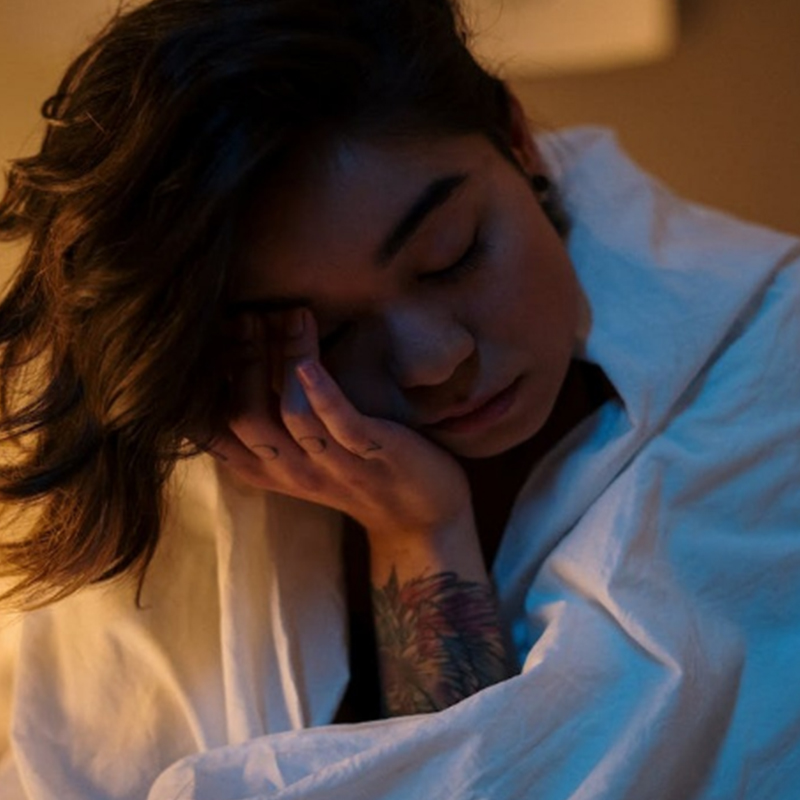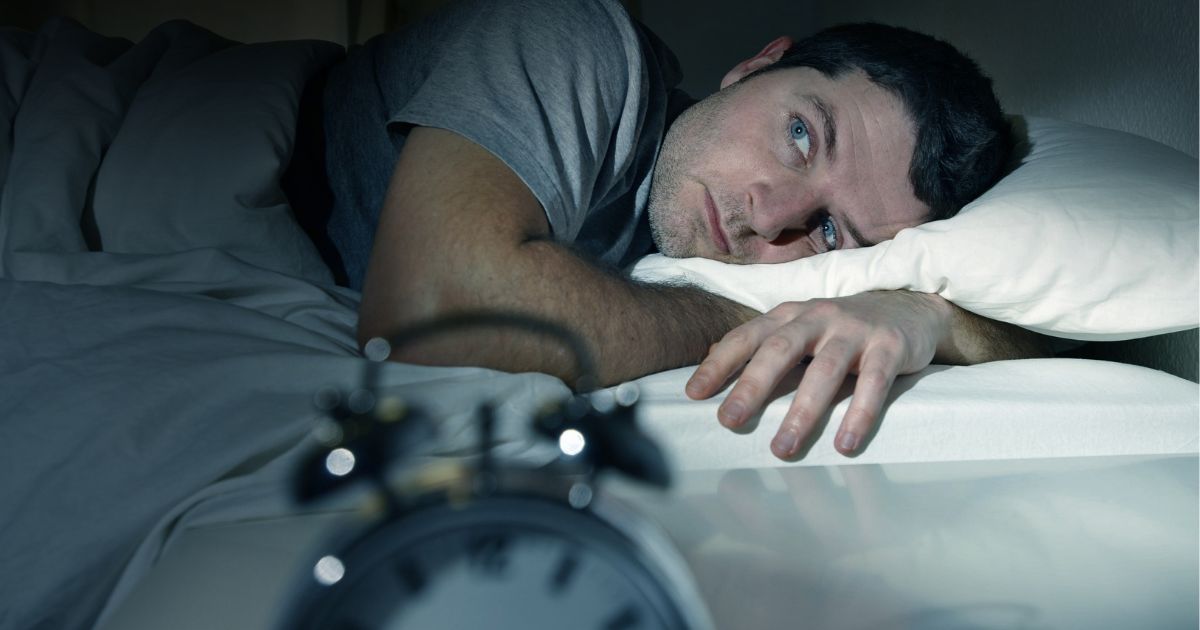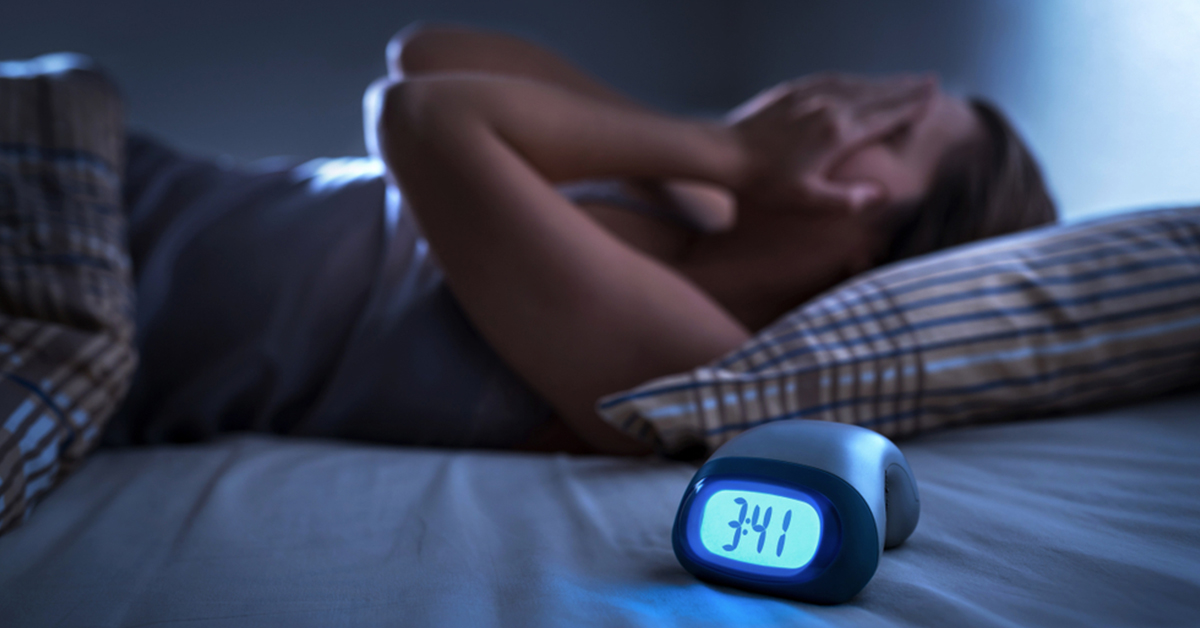Does it take you a long time to fall asleep at night? Do you keep waking up while sleeping? Do you feel tired and cranky the next day? While getting a bad night’s sleep every now and then is normal, consistently struggling with going to sleep and staying asleep may be a sign of a sleep disorder called insomnia. About 10% of adults worldwide suffer from insomnia. The main symptom of insomnia is difficulty going to sleep and staying asleep, which leads to other symptoms regarding mental and physical health. Getting enough sleep is crucial for your overall well-being, which is why insomniacs experience struggles in their day-to-day lives. Thankfully, there are treatment plans for insomnia. Treatments include developing good sleep habits, medication, and mental healthcare. In this blog, we’ll discuss the types of insomnia, its causes, symptoms, and preventions.
What is Insomnia?
Insomnia is a common sleep disorder that causes people to have trouble falling asleep and staying asleep. This lack of sleep affects mood, health, and daytime activities. Generally, healthy adults need seven to nine hours of sleep each night, but there is no set number of hours of sleep to diagnose someone with insomnia. Insomniacs feel tired and ready to sleep but struggle to actually do so. This can lead to frustration and worry. While there is no main cause of insomnia, physiological arousals such as an increase in heart rate and higher body temperature can disrupt sleep patterns. Mental health can also be connected to insomnia, especially in those that experience depression and anxiety. Additionally, a family history of insomnia may be the reason someone struggles with the sleep disorder. There are two main types of insomnia:
- Acute insomnia. This type of insomnia is short-term, with sleep difficulties that last for several days or weeks, but not lasting for more than three months. Acute insomnia is usually connected to a traumatic event or life stressor, such as being fired, getting a divorce, or losing a loved one.
- Chronic insomnia. This type of insomnia is long-term and is classified as chronic insomnia when a person struggles with sleep at least three days a week for more than a three-month period. People with chronic insomnia suffer from daytime symptoms that are severe enough to interfere with daily life.
Insomnia Symptoms
Sleep is very important for your mental and physical health. It keeps us healthy and allows us to function at our best. When we don’t get enough sleep, we feel its effects during the daytime hours. Although symptoms of insomnia occur at night, more symptoms lead to the next day and days ahead. Some symptoms of insomnia overlap with other sleep disorders, so use this list as a general guide and not a self-diagnosis:
- Trouble falling asleep at night
- Trouble staying asleep through the night
- Naturally waking up too early
- Not feeling rested after a night’s sleep
- Sleepiness during the daytime
- Difficulty focusing
- Low motivation
- Forgetfulness
- Delayed reflexes
- Depression or anxiety
- Irritableness
Some symptoms of not getting enough sleep are physical and noticeable. You can usually see when someone is exhausted. Sleep-deprived individuals may be victims of shakiness and excessive yawning. A lack of sleep is especially visible near the eyes. Physical symptoms of insomnia may include droopy eyelids, dark circles under the eyes, puffiness, or red eyes. Low amounts of sleep can also cause an increase in wrinkles, pale skin, and droopy corners of the mouth.
The lack of sleep that insomnia causes can lead to many daytime consequences that severely affect the quality of life. Feelings of fatigue and reduced attention during waking hours can cause problems in work performance and social life. Insomnia can also greatly affect behavior and may create impatience, hyperactivity, or aggressiveness. These behavior issues are especially seen in children with insomnia. Additionally, with the slow reflexes that insomnia causes, harmful accidents could occur. All of the symptoms of insomnia are unpleasant and create major disruptions in your life, which is why seeking help is so important.
Tips to Prevent Insomnia
Good sleep habits, also known as sleep hygiene, can help prevent insomnia. Here are some changes to make to your daily habits to start getting a better night’s sleep:
- Keep a consistent bedtime and waketime.
- Be active during the day.
- See if any medicines that you’re on have a side effect of sleep deprivation.
- Avoid and limit naps.
- Avoid and limit caffeine, nicotine, and alcohol use, especially right before sleeping.
- Don’t use your bed for working or eating.
- Keep all electronics and lights off while sleeping.
Jacksonville Sleep Center Can Help
When left untreated, insomnia can lead to long-term sleep deprivation and low quality of life. Untreated insomnia comes with more risks than simply feeling sleepy. It increases the risk of substance abuse, chronic pain, heart disease, obesity, and diabetes. It also can weaken the immune system over time, making you more prone to illnesses. If you think you may be suffering from chronic insomnia, discuss your sleep concerns with our health professionals at Jacksonville Sleep Center in Jacksonville, Florida for a diagnosis and treatment plan. Our dedicated staff will work with you to beat insomnia and end the sleepless nights. Want to start feeling rested every day? Contact us!






